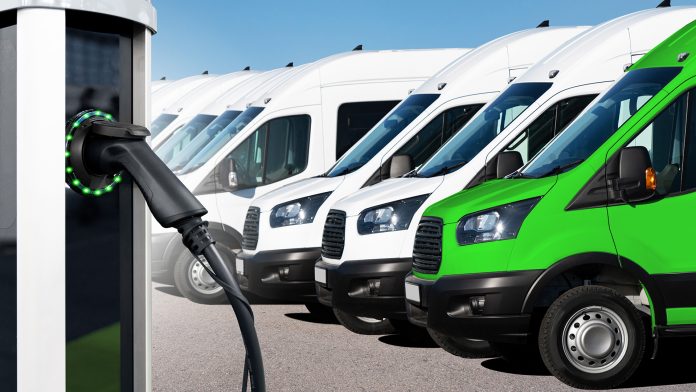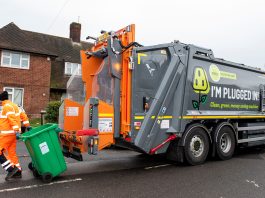Mark Young, Account Director at AX, explores the role of the fleet sector in driving the transition to electric vehicles.
Despite some negative headlines from a vocal minority, Britain’s millionth battery electric vehicle (BEV) was registered in January, and the speed of electrification in the fleet sector is accelerating.
The trend, which saw large company car fleets and businesses take 77.1% of BEV volumes in 2023 according to data from the Society of Motor Manufacturers and Traders (SMMT), shows that the government’s decision to push back the ban on sales of new petrol and diesel cars from 2030 to 2035 has not undermined the sector’s enthusiasm for electric cars.
In the UK, some perceive the government to be sending mixed signals as anti-EV sentiment grows among vocal commentators. While higher retail prices and few tangible buyer incentives are undoubtedly contributing factors, consumer confidence has been hit by recent negative press. Overall, though, battery electric vehicle (BEV) uptake increased by almost 50,000 units compared to 2022, with 314,687 new registrations last year.
More than a fifth of all new cars sold by car manufacturers in the UK must be zero emission
Despite the significant uptick in BEV sales in the fleet and business sector, which accounted for more than three-quarters of overall BEV sales last year, consumer demand for fully electric cars was far more muted. This dragged down the market share of BEVs, which slid to 16.5% from 16.6% in 2022. In spite of this, 2023 saw more BEVs reach the road than in 2020 and 2021 combined.
This will, however, concern the UK Government, which has implemented rules to ensure car manufacturers ramp up efforts to sell more EVs. With momentum behind the transition from traditionally powered diesel and petrol cars to battery electric vehicles, there is a lot riding on maintaining consistent growth in sales of fully electric vehicles to meet or exceed the mandated sales rule.
With the ban on sales of new diesel and petrol cars currently set for 2035, the UK Government has mandated that from this year more than a fifth of all new cars sold by car manufacturers must be zero emission. The zero emission vehicle (ZEV) mandate sets out the percentage of new zero emission cars and vans manufacturers will be required to produce each year. This year, 10% of vans and 22% of cars sold will need to be electric.
With EV sales representing just over 16% of the market last year – a figure which did not grow at all during 2023 and was a worse result than in 2022 – there will be plenty of people concerned that demand BEVs does not run out of steam. With the BEV market share falling to 15.2% in March this year, the following few months will either bring relief or further pain for those hoping for improved consumer demand.

The fleet sector is driving demand for BEVs
With the fleet sector at the forefront of this growth, if the momentum continues, we could see the majority of businesses operating solely electric cars within the next few years, yet the spotlight has been on slowing retail sales of BEVs, where the lack of incentives is reflected in lower demand.
Business and fleet vehicle drivers benefit from significant incentives, including tax advantages, which are partly responsible for the high uptake among fleets. On the other hand, consumers do not benefit from any significant incentives to buy electric vehicles, which makes their purchase price harder to swallow.
With fleets driving demand for BEVs, the sector’s importance to the wider new car market is also increasingly evident.
Fleet sales well ahead of retail sales
Up by 10.4%, the overall new car market secured its 20th successive month of growth in March 2024 according to SMMT data. This growth is entirely due to fleets and businesses, which saw an increase of 29.6% compared to the same month last year. Sales to private buyers actually fell by -7.7% in the same period, mostly due to weak consumer confidence and the current high interest rates.
This all means that fleets are continuing to claim an increasingly large slice of the overall new car market. Growing to nearly 54.7% last year, the pattern has continued into 2024 with a year-to-date market share of 59.8%.
While the growth in fleet sales won’t go on forever, we are likely to see the sector outshining retail sales for much of 2024 and potentially the following couple of years. If that is the case, it is no exaggeration to say that the vast majority of fleets will have transitioned to electric vehicles before 2030 – that’s five years ahead of the current ban on new petrol and diesel cars.
A need for improved EV infrastructure
For fleets, the EV transition reaches beyond just the vehicles on the road; they must also consider and plan for what happens when a vehicle is taken off the road. While most headlines focus on the need for improved EV charging infrastructure, support services which help electric vehicle drivers following an incident are also a vital part of the changing automotive ecosystem.
With the fleet sector leading the way in EV registrations, the need for an incident management service with an integrated EV-for-EV guarantee should the car be off the road has never been greater.









